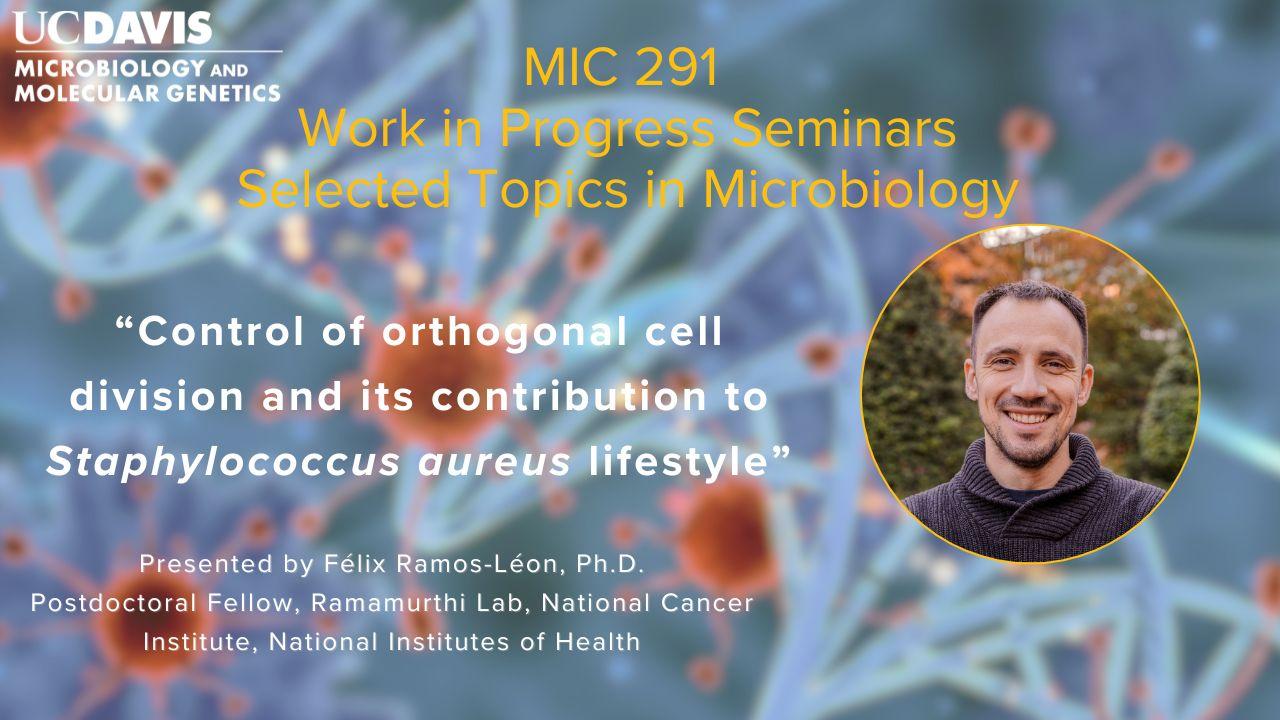
Event Date
MIC 291: Work in Progress Seminars
Selected Topics in Microbiology
Presented by Félix Ramos-Léon, Ph.D., Postdoctoral Fellow, Ramamurthi Lab, National Cancer Institute, National Institutes of Health
Dr. Ramos-Léon presents: "Control of orthogonal cell division and its contribution to Staphylococcus aureus lifestyle"
About the seminar:
Staphylococcus aureus is a Gram-positive pathogen and a major cause of hospital-acquired infections. S. aureus cells divide in consecutive orthogonal planes, where daughter cells divide at angles perpendicular to the previous division plane used by the mother cell.. We recently identified PcdA, a previously uncharacterized NTPase, as a key factor that works with the conserved scaffold protein DivIVA to mark the future division site and guide the placement of the tubulin homolog FtsZ. Loss of PcdA disrupts this orthogonal cell division, sensitizes cells to cell-wall–targeting antibiotics, and reduces virulence. In infection models, we found that PcdA is essential for the formation of staphylococcal abscess communities (SACs), dense multicellular structures encased by a fibrin capsule that shields the bacteria from immune attack. Our results suggest that orthogonal division ensures an even distribution of virulence factors on the cell surface, promoting SAC formation and persistence in host tissues.
About Dr. Ramos-Léon:
Félix Ramos-León is a postdoctoral fellow at the National Cancer Institute (NCI) in the laboratory of Dr. Kumaran Ramamurthi. His research interest focuses on the cell biology of bacteria, with a particular interest in organisms that have not traditionally served as model systems. He earned his PhD at the University of Seville (Spain), where he investigated cell biology of filamentous cyanobacteria, and later worked at the John Innes Centre (UK) studying cell division and development in the filamentous Gram-positive bacterium Streptomyces. He is currently studying the human pathogen Staphylococcus aureus, with a focus on how its mode of cell division contributes to pathogenesis and antibiotic resistance.
